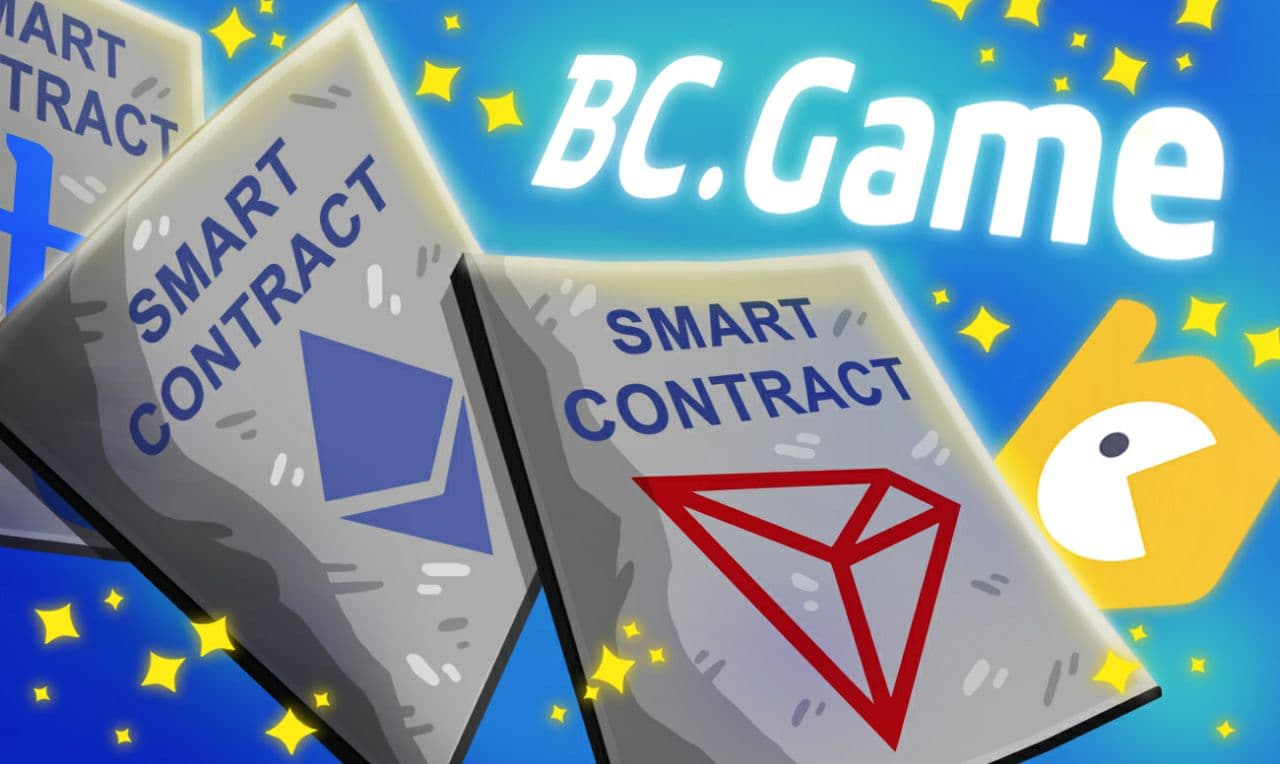Online gaming is huge and traditional players are still dominant, but there is a paradigm shift. Blockchain is the base layer, and smart contracts will be the fuel that powers the next wave of innovation, transcending finance to other facets of the economy, including gaming and online crypto gambling. For this reason, choosing a smart contract platform goes a long way in determining user experience, efficacy, and so much more. These are parameters that users, specific players of the best crypto games, who admittedly don’t want to spend a fortune paying gas fees or waiting for their winnings to be dispensed after hours, are watching.
What are Smart Contracts?
To better grasp what makes up the best smart contract platform, one must first know what a smart contract is. In crypto circles, a smart contract enables autonomy, a feature on which BC.Game anchors its operations. Here’s how: Blockchains are built with transparency, fairness, and the elimination of the middleman in mind. Think about this: an intermediary’s presence is the cause of the present distributed ledger lead revolution. Ordinary, traditional platforms throttle innovation, determining who gets to succeed and which closes shop. Accordingly, smart contracting platforms play a vital role in levelling the field for fairness, transparency, and the swing back of power from publishers to content creators. After all, they are the generators and deserve much more than enriching the middleman through unfair deals and prohibitively high fees.
Top 5 Best Smart Contract Platforms
In 2021, these were the best smart contracting platforms every gamer should consider:
Ethereum
The Ethereum blockchain is the first smart contract platform, and it was launched in 2015. The blockchain has one of the largest communities and developers, squeezing out their first-mover advantage. Within the Ethereum ecosystem is ETH, a native currency that derives its value from its utility. It’s used for paying fees and so much more. Over time, and due to heavy use, the network has experienced glitches. It is marked with high transaction fees due to the base layer’s architecture allowing only 15 transactions to be processed every second.
Tron
Similar to Ethereum, Tron is a smart contracting platform aiming to develop a decentralised web. Through the highly scalable Tron blockchain, developers can launch gaming dApps to utilise the network’s high scalability. The Tron blockchain can process over 2,000 transactions every second due to their innovative consensus algorithm, the delegated proof-of-Stake. At any instance, 27 super-validators process transactions and secure the network. This superior processing power makes the blockchain scalable and can execute transactions cheaply.
For this reason, Tron is popular for online gambling and gaming dApps. Some standout features of Tron include high availability, reliability, and throughput. It is also compatible with Ethereum.
EOS
The platform was specifically designed to address the challenge faced by Ethereum: scalability. This smart contract platform adopts the delegated Proof-of-Stake consensus algorithm enabling developers to launch from a secure, scalable, and reliable network. Within EOS, fees are negligibly low, explaining EOS’s preference by gamers and crypto gambling dApps. At any time, there are 21 validators called Block Producers tasked with processing transactions and securing the platform against attacks. Besides fees, EOS has an online community called the EOS forum where fans can discuss platform matters. Unique distinguishing features of EOS include its upgradability, governance, flexibility, and usability.
Hedera Hashgraph
This patented and interoperable smart contracting platform side-stepped the common design of most distributed ledger networks. Hedera can be described more as a graph whose throughput is directly proportional to the number of transactions processed. As such, the Hedera network doesn’t clog—processing over 10,000 transactions per second for ordinary non-smart contracting transactions. Besides, it is energy-efficient and cheap to transact since it uses Direct Acyclic Graph (DAG) for consensus. Another key difference it has with other networks is its governance. There will be 39 multinational corporations running millions of nodes across the globe governing the network. Hedera is fast and supports smart contracting, allowing dApps in gaming and DeFi, all in a low-fee environment.
Tezos
The Tezos network is a self-amending, decentralised and open-source platform that supports the deployment of smart contracts. Through the high throughput network, users can deploy a whole range of dApps, from financial to gaming. Tezos supports Formal Verification because of its modular architecture and formal upgrade mechanism, making it incredibly hard for the network to fork. Additionally, the platform is inherently designed for code correctness and safety, especially for high-value use cases considering blockchains’ immutability. Tezos is different because of its on-chain governance style and use of Proof-of-Stake, eliminating the need for miners. Instead of miners, as in the case of Bitcoin, Tezos has bakers who are validators that process transactions and secure the network.
Conclusion
The current gaming setup is complicated. Gamers and creators have to sift through pages of legal jargon to ascertain their usage rights. However, this is all set to change with the increasing use of the best smart contracts and blockchain, especially in crypto gambling. Their native currencies, when playing popular online gambling games like Bitcoin Crash, are now banned from fiat, opening up more possibilities. At the same time, creators have more latitude and freedom because of the open, fair, and efficient execution of smart contracts.










